Report
Feb 18 2022
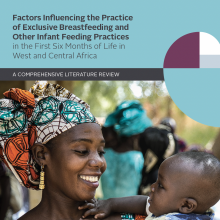
Factors Influencing the Practice of Exclusive Breastfeeding and Other Infant Feeding Practices in the First Six Months of Life in West and Central Africa
This comprehensive review of the literature written by Alive & Thrive and UNICEF provides nutrition stakeholders findings from research on the social and behavioral determinants of exclusive breastfeeding and other infant feeding practices during the first six months of life in West and Centr
Guide/Manual
Feb 09 2022
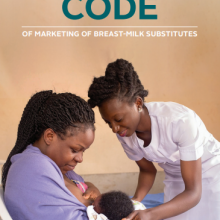
A Quick Guide: The International Code of Marketing for Breast-milk Substitutes
Updated February 2022!
This quick guide summarizes the International Code of Marketing of Breast-milk Substitutes (The Code) and relevant resolutions of the World Health Assembly that help protect breastfeeding around the globe.
Poster/Graphic, Handout
Nov 10 2020
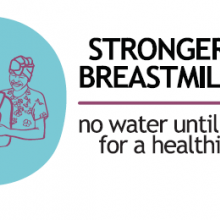
Stronger with breastmilk only campaign resources
In 2019, UNICEF, the World Health Organization and Alive & Thrive launched a regional campaign to increase the rate of exclusive breastfeeding across West Africa - the Stronger With Breastmilk Only initiative.
Poster/Graphic
Jun 02 2017
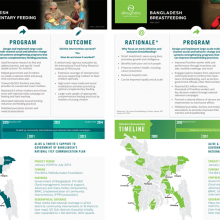
Breastfeeding and complementary feeding intervention summary and results
These two infographics summarize Alive & Thrive’s work in Bangladesh from 2009 to 2014. The rigorously evaluated intervention resulted in large scale improvements in exclusive breastfeeding and complementary feeding practices.
Guide/Manual
May 11 2017
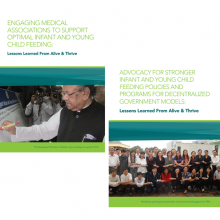
Best practices and lessons learned: Policy advocacy in three country contexts
From 2010-2014, Alive & Thrive worked in Bangladesh, Ethiopia, and Viet Nam to reduce undernutrition and death caused by sub-optimal infant and young child feeding (IYCF) practices.
Poster/Graphic
May 31 2016
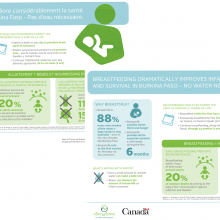
Breastfeeding dramatically improves infant health and survival in Burkina Faso - no water needed
Easy-to-use reference tool that highlights optimal breastfeeding practices in Burkina Faso, and is intended for use by decision-makers and stakeholders when advocating for optimal breastfeeding practices.

